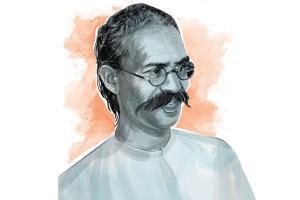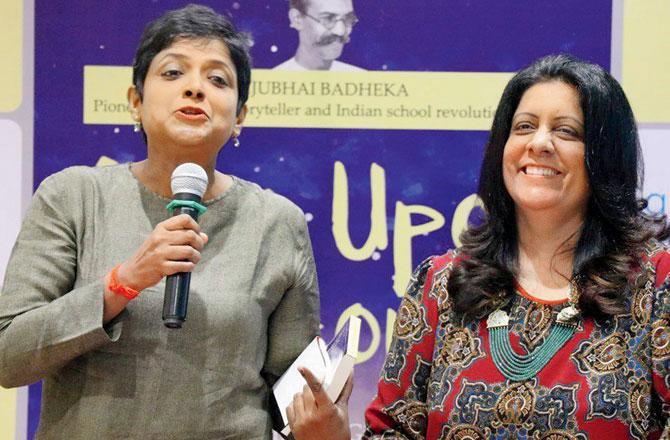The man who introduced Montessori education in India inspires a book that's a perfect handbook for teachers and parents

Illustration/Ravi Jadhav
Most Indians will know Rabindranath Tagore, but a mention of Girijashankar Bhagwanji 'Gijubhai' Badheka is likely to draw blank stares. That's the assumption Once Upon a Story, a new book by Vinitha and Dr Swati Popat Vats, starts off with. Vats and Vinitha follow a clear trajectory of narration. They paint a clear portrait of the educator, before deviating into his specific ideas like the importance of parent induction and storytelling.
ADVERTISEMENT
Badheka was born in 1885 and hailed from Vala, Chittal in Saurashtra. He was extremely unhappy with the rote learning and caning in school. After the birth of his newborn, the thought of the education system triggered him. Through Motibhai Amin, who ran a small school in Gujarat, he was introduced to the Montessori system — which puts the child at the centre of the system, in contrast to a talk-down approach. And then, Badheka introduced it to India. The book, thus, is a useful tool in not just understanding the journey of an educator but also gets us thinking about the state of education today.

Vinitha and Dr Swati Popat Vats
Edited excerpts from the interview.
What prompted both of you to write Once Upon a Story?
Swati: I think Gijubhai has always been an inspiration. But the most important reason to write this was my agitation when people were gung-ho about going abroad and learning the same things that Indian educationists have been doing for years.
Vinitha: I heard about Gijubhai from Swati 15 years ago. She had made Divaswapna, Gijubhai Badheka's book, compulsory reading. The more I looked out for information about him, the less I found anything. I was already an established journalist when I signed up for the ECCEd course. By the time I was done, I would tell Swati, "Let's write about him." I remained convinced of this for 15 years. In the end, last year she said, "Let's do it." And we did.
Could you elaborate on your research process?
Vinitha: Gijubhai Badheka wrote more than 200 books. Yet this is the first book about him in any language. All that is there about him is in Gujarati and then there are short documentaries about him, also in Gujarati. So, not only did we collate all the information about him, we also contextualised it.
Did he deviate from Montessori methods?
Swati: Yes, he did. I am a follower of Pestalozzi, who is called the father of curriculum development, and he was against bringing something from another culture and implementing it elsewhere.
Vinitha: Not many know that Gijubhai brought Montessori to India and it continues to be here. But he tweaked everything he had to suit the children he was teaching. And this is what the book says: the child never fails. It is the system or the institution that has not worked for the child. If schools keep children as their centres — as Gijubhai proved — it is possible to find ways to make learning accessible.
Catch up on all the latest Mumbai news, crime news, current affairs, and also a complete guide on Mumbai from food to things to do and events across the city here. Also download the new mid-day Android and iOS apps to get latest updates
 Subscribe today by clicking the link and stay updated with the latest news!" Click here!
Subscribe today by clicking the link and stay updated with the latest news!" Click here!











